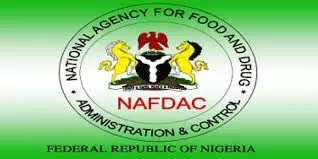Influx of fake, substandard products creating health, economic emergencies – Expert

Dr Emeka Offor, Erstwhile Executive Secretary, Nigerian Investment Promotion Commission, has described Nigeria’s counterfeit goods crisis as not just an economic problem but a public health emergency that demands urgent action.
Offor said this in an interview with news men on Friday in Abuja.
He said that while drastic proposals like feeding convicted counterfeiters their own products might seem extreme, the punishment for such crimes must match their severity.
He said that counterfeit and substandard products were flooding local and national markets, causing dangerous consequences for consumers and threatening the country’s economic stability.
He cited cities like Aba as epicenters of this crisis, which endangers public health and stifles national development.
“According to the Standards Organisation of Nigeria (SON), counterfeit goods account for 40 per cent of products in the Nigerian market, resulting in annual losses exceeding 20 billion dollars.
“The health sector is also reeling from the surge in fake drugs.
“The National Agency for Food and Drug Administration and Control (NAFDAC) reports that approximately 17 per cent of pharmaceutical products in circulation are counterfeit, putting millions of lives at risk,” he said.
Offor stressed the tragic human cost of counterfeit goods, adding that hospitals are overwhelmed with cases of poisoning and organ failure linked to fake medications.
He shared the example of a woman who, unknowingly, consumed counterfeit drugs for a chronic condition, leading to severe complications that required emergency treatment.
“Substandard electrical products have caused devastating fires, destroying homes and businesses.
“Fake building materials have led to building collapses, while counterfeit auto parts have resulted in fatal road accidents,” he said.
For legitimate manufacturers, he said that the counterfeit crisis posed a dire threat.
“Companies like Nigerian Breweries and Unilever report significant revenue losses due to fake versions of their products.
“These counterfeits, often priced lower, make it nearly impossible for legitimate businesses to compete.
“Many companies have been forced to shut down, leading to job losses, reduced tax revenue, and diminished foreign investment,” he said.
Offor also pointed to the influx of cheap, substandard imports, particularly from China, which often enter Nigeria through porous borders or corrupt customs practices.
“The World Bank estimates that Nigeria loses about 15 per cent of potential GDP growth annually due to the circulation of fake products and the illegal trade associated with them,” he said.
He said that Nigeria’s healthcare system was also bearing the brunt of the counterfeit crisis.
According to him, hospitals are seeing an increasing number of patients with ailments directly caused by counterfeit goods.
“From toxic cosmetics causing severe skin conditions to fake drugs causing irreversible harm, the healthcare burden is unsustainable,” he said.
While agencies like NAFDAC and SON have intensified their efforts, Offor said that their resources remained limited.
According to him, in 2023, NAFDAC destroyed counterfeit goods worth four billion Naira.
“But experts agree that this is just a fraction of the problem.
“Corruption continues to undermine their work, making it difficult to enforce regulations effectively,” he said.
He called for a multifaceted approach to tackle the counterfeit crisis.
He said that only through coordinated action from the government, industry, and consumers can Nigeria hope to stem the tide of counterfeit products and protect its economy and public health.
He stressed the need for a reformed judicial system to ensure swift prosecution of offenders, with severe penalties, including long jail terms for counterfeiters, adding that technology must play a critical role.
“First, the government must bolster regulatory bodies with increased funding, modern technology for detecting counterfeit products, and expanded enforcement powers.
“One proposed solution is the implementation of a national product verification system using QR codes or blockchain technology, allowing consumers to verify products’ authenticity.
“Manufacturing companies should also invest in anti-counterfeiting measures like holographic labels and track-and-trace systems,” he said.
He said that public education was also crucial to combating counterfeiting, additionally that border control must be strengthened
“Consumers must be made aware of the risks associated with counterfeit products and how to identify them.
“Trade associations should establish quality certification programmes, and the government should provide incentives for local manufacturers to adopt international quality standards.
“By enhancing surveillance technology and collaborating more effectively with neighboring countries, the government can reduce the influx of fake goods into Nigeria,” he said.
He , therefore, urged all stakeholders to take decisive action to protect Nigeria’s economy and public health from the counterfeit crisis



